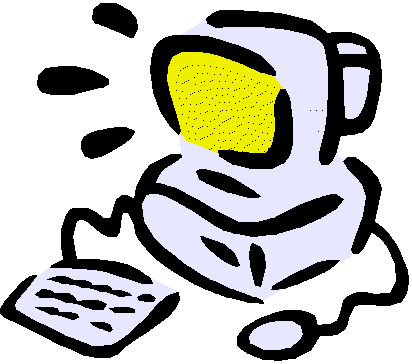
Techno-Stress:
The stress of adjusting to new technologies.
Moments of peace and serenity are
often missing from modern life.
|
To assist in
managing all of this information we have computers. These are the same computers
that have helped to create the our current mass of information. Computer technology also
demonstrates a rapid acceleration of change. In 1966
Gordon Moore, the founder of Intel, stated that the power and complexity of the silicon
chip would double every 12-18 months. This 18-month prediction has proven true.
Today’s computer chip is four million times as powerful as its predecessor of 30
years ago. These powerful processors have ushered us into the Information Age.
The net result is that in modern society we have increasingly powerful machines to
manipulate and process an ever-increasing amount of information. New products, inventions,
procedures, and policies, all based on new, rapidly available information, are announced
every day.
Computer technology, the information highway, and the Internet are creating something new,
techno-stress. Techo-stress is the stress of adjusting to new technologies. There is also
the concept of "time sickness" which comes from trying to juggle too many
options with too little time. We experience events happening faster and faster. It is
difficult for us to slow down. We actually become impatient with the "slower
computers" (which are in fact amazingly fast) when we have to wait that extra few
seconds for something to happen. Frustration and stress arrive as we wait for the monitor
screen to change. "Future shock" (too much change in too short of a time) has
arrived.
We have moved out of the Industrial Age into the Information Age. We confront continual
adjustment to new and changing situations. One hundred channels on cable TV bombard us
with sensory and information overload. The 24 hour news stations tell us all about it. If
you just listen to the evening news you learn in 30 minutes all on the major events of the
day from around the world. As a member of the Global Village you now learn almost
instantaneously what in the past would have taken months or years to know. The result is
that you are more immediately impacted by a wide variety of world events, most of which
seem to be "bad" news of crime, violence and political conflict. Downsizing,
restructuring, and re-engineering threaten formerly secure jobs. Family life is in
turmoil. A safe haven from change is only temporarily found, perhaps, while on a vacation
or in just a quite stolen moment as you admire the beauty of a flower garden from your
office window. Such moments of peace and serenity are often missing from modern life. It
is hard to predict what will happen next. The rules are always changing and the game is
not the same.
In the new Information Society most of our stress comes from confronting the mixture of
psychological, sociological, and emotional events associated with life in this state of
continual flux. The fundamental situation is that:
- We live in a time of rapid change.
- Change itself is changing and becoming faster.
Stress no longer comes mainly from threats to physical
safety but from interactions with others and the demands of modern culture.
|

|
